
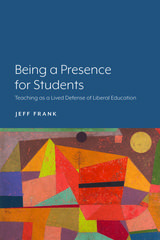
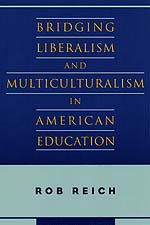
Linking political theory with educational history and policy, Rob Reich offers provocative new answers to these questions. He develops a liberal theory of multicultural education in which the leading goal is the cultivation of individual autonomy in children. Reich draws out the policy implications of his theory through one of the first sustained considerations of homeschooling in American education. He also evaluates three of the most prominent trends in contemporary school reform—vouchers, charter schools, and the small school movement—and provides pedagogical recommendations that sharply challenge the reigning wisdom of many multicultural educators.
Written in clear and accessible language, this book will be of interest to political theorists, philosophers, educators, educational policymakers, and teachers.
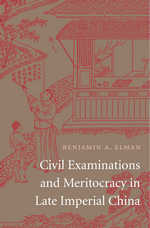
During China's late imperial period (roughly 1400-1900 CE), men would gather by the millions every two or three years outside official examination compounds sprinkled across China. Only one percent of candidates would complete the academic regimen that would earn them a post in the administrative bureaucracy. Civil Examinations assesses the role of education, examination, and China's civil service in fostering the world's first professional class based on demonstrated knowledge and skill.
While millions of men dreamed of the worldly advancement an imperial education promised, many more wondered what went on inside the prestigious walled-off examination compounds. As Benjamin A. Elman reveals, what occurred was the weaving of a complex social web. Civil examinations had been instituted in China as early as the seventh century CE, but in the Ming and Qing eras they were the nexus linking the intellectual, political, and economic life of imperial China. Local elites and members of the court sought to influence how the government regulated the classical curriculum and selected civil officials. As a guarantor of educational merit, civil examinations served to tie the dynasty to the privileged gentry and literati classes--both ideologically and institutionally.
China did away with its classical examination system in 1905. But this carefully balanced and constantly contested piece of social engineering, worked out over the course of centuries, was an early harbinger of the meritocratic regime of college boards and other entrance exams that undergirds higher education in much of the world today.
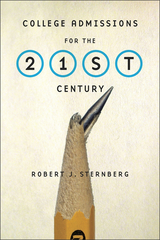
SATs, ACTs, GPAs. Everyone knows that these scores can’t tell a college everything that’s important about an applicant. But what else should admissions officers look for, and how can they know it when they see it? In College Admissions for the 21st Century a leading researcher on intelligence and creativity offers a bold and practical approach to college admissions testing.
Standardized tests are measures of memory and analytical skills. But the ever-changing global society beyond a college campus needs more than just those qualities, argues Robert Sternberg. Tomorrow’s leaders and citizens also need creativity, practicality, and wisdom.
How can the potential for those complex qualities be measured? One answer is “Kaleidoscope,” a new initiative in undergraduate admissions, first used at Tufts University. Its open-ended questions for applicants, and the means used to score the answers, gives applicants and admissions officers the chance to go beyond standardized tests.
Does it work? As Sternberg describes in detail, Kaleidoscope measures predicted first-year academic success, over and above SATs and high school GPAs, and predicted first-year extracurricular activities, leadership, and active citizenship as well. And every year that Kaleidoscope measures were used, the entering class’s average SATs and high school GPAs went up too.
What worked at Tufts can work elsewhere. New kinds of assessments, like Kaleidoscope, can liberate many colleges and students from the narrowness of standardized tests and inspire new approaches to teaching for new kinds of talented, motivated citizens of the world.
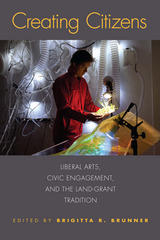
The nine essays in Creating Citizens offer structures for incorporating CCE initiatives into university programs, instructional methods and techniques, and numerous case studies and examples undertaken at Auburn University but applicable at any university. Many contributors describe their own rewarding experiences with CCE and emphasize the ways outreach efforts reinvigorate their teaching or research.
Creating Citizens recounts the foundation of land-grant institutions by the Morrill Act of 1862. Their mission is to instruct in agriculture, military science, and mechanics, but these goals augmented rather than replaced an education in the classics, or liberal arts. Land-grant institutions, therefore, have a special calling to provide a broad spectrum of society with an education that not only enriched the personal lives of their students, but the communities they are a part of. Creating Citizens demonstrates the important opportunities CCE instruction represents to any university but are especially close to the heart of the mission of land-grant colleges.
In open societies, the role and mission of public institutions of higher learning that are supported by public subsidies are perennial subjects of interest and debate. Creating Citizens provides valuable insights of interest to educators, education administrators, students, and policy makers involved in the field of higher education.

The Crisis of Meaning was first published in 1995. Minnesota Archive Editions uses digital technology to make long-unavailable books once again accessible, and are published unaltered from the original University of Minnesota Press editions.
Pick up any newspaper and it is clear that the United States is facing a democratic crisis. Recent culture wars and debates about political correctness and culture have illustrated how conventional definitions of citizenship and national identity have been thrown into question.
Investigating what he views as an inseparable link between culture and politics, David Trend analyzes how notions of patriotism, citizenship, community, and family are communicated within specific public and private institutions. He extends the meaning and purpose of pedagogy as a cultural practice outside the classroom, focusing on political activism in education, the mass media, and the art world.
The Crisis of Meaning supplies a crucial theoretical understanding of the ways in which the pedagogical and political intersect at a variety of cultural sites, as it points us toward a "democratic" process of national identity formation. It is indispensable reading for anyone interested in the connections between education and politics.
David Trend is executive director of the Center for Social Research and Education in San Francisco and also executive editor of the Socialist Review. He is the author of Cultural Pedagogy: Art/Education/Politics (1992).
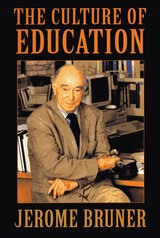
What we don't know about learning could fill a book--and it might be a schoolbook. In a masterly commentary on the possibilities of education, the eminent psychologist Jerome Bruner reveals how education can usher children into their culture, though it often fails to do so. Applying the newly emerging "cultural psychology" to education, Bruner proposes that the mind reaches its full potential only through participation in the culture--not just its more formal arts and sciences, but its ways of perceiving, thinking, feeling, and carrying out discourse. By examining both educational practice and educational theory, Bruner explores new and rich ways of approaching many of the classical problems that perplex educators.
Education, Bruner reminds us, cannot be reduced to mere information processing, sorting knowledge into categories. Its objective is to help learners construct meanings, not simply to manage information. Meaning making requires an understanding of the ways of one's culture--whether the subject in question is social studies, literature, or science. The Culture of Education makes a forceful case for the importance of narrative as an instrument of meaning making. An embodiment of culture, narrative permits us to understand the present, the past, and the humanly possible in a uniquely human way.
Going well beyond his earlier acclaimed books on education, Bruner looks past the issue of achieving individual competence to the question of how education equips individuals to participate in the culture on which life and livelihood depend. Educators, psychologists, and students of mind and culture will find in this volume an unsettling criticism that challenges our current conventional practices--as well as a wise vision that charts a direction for the future.
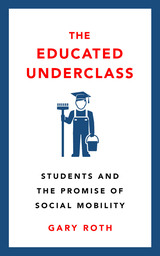
The dream of social mobility is dying. Where previous generations routinely expected to surpass their parents' level of economic success, prospects for today's young people are increasingly bleak. What role does higher education play in the process? An essential and frightening one, according to author Gary Roth.
The Educated Underclass reveals the structural problems that are helping to create this problem. Gary Roth shows how universities—touted as the best way up the economic ladder for young people—actually reproduce traditional class hierarchies. And as more graduates emerge every year into economies that are no longer creating a steady stream of stable jobs, the odds of landing one decrease—and over-educated people end up scrapping for poorly compensated positions for which they're overqualified. Chapters include:
*Higher education and class
*The overproduction of intelligence
*Class in transition: historical background
*Underemployment through the decades
*Class status and economic instability
*And more!
Roth writes in his Introduction, “Education has become an intermediary institution between a social system that habitually sputters and declines while ever-greater amounts of consumer products are dangled in front of the system’s workforce. The result: a dynamic fraught with all sort of negative possibilities, both socially and psychotically.”
A broadside against the failures of our education system and our economy, Gary Roth’s The Educated Underclass aims to startle us out of our complacency and wake us up to action.
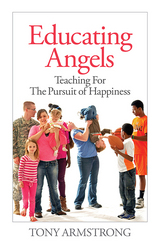
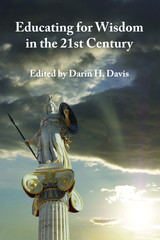

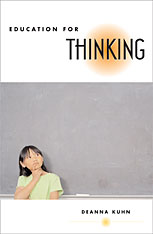
What do we want schools to accomplish? The only defensible answer, Deanna Kuhn argues, is that they should teach students to use their minds well, in school and beyond.
Bringing insights from research in developmental psychology to pedagogy, Kuhn maintains that inquiry and argument should be at the center of a “thinking curriculum”—a curriculum that makes sense to students as well as to teachers and develops the skills and values needed for lifelong learning. We have only a brief window of opportunity in children’s lives to gain (or lose) their trust that the things we ask them to do in school are worth doing. Activities centered on inquiry and argument—such as identifying features that affect the success of a music club catalog or discussing difficult issues like capital punishment—allow students to appreciate their power and utility as they engage in them.
Most of what students do in schools today simply does not have this quality. Inquiry and argument do. They are education for life, not simply more school, and they offer a unifying purpose for compulsory schooling as it serves an ever more diverse and challenging population.
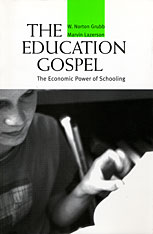
In this hard-hitting history of "the gospel of education," W. Norton Grubb and Marvin Lazerson reveal the allure, and the fallacy, of the longstanding American faith that more schooling for more people is the remedy for all our social and economic problems--and that the central purpose of education is workplace preparation.
But do increasing levels of education accurately represent the demands of today's jobs? Grubb and Lazerson argue that the abilities developed in schools and universities and the competencies required in work are often mismatched--since many Americans are under-educated for serious work while at least a third are over-educated for the jobs they hold. The ongoing race for personal advancement and the focus on worker preparation have squeezed out civic education and learning for its own sake. Paradoxically, the focus on schooling as a mechanism of equity has reinforced social inequality. The challenge now, the authors show, is to create environments for learning that incorporate both economic and civic goals, and to prevent the further descent of education into a preoccupation with narrow work skills and empty credentials.
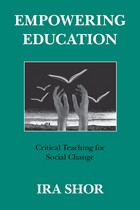
For Shor, empowering education is a student-centered, critical and democratic pedagogy for studying any subject matter and for self and social change. It takes shape as a dialogue in which teachers and students mutually investigate everyday themes, social issues, and academic knowledge. Through dialogue and problem-posing, students become active agents of their learning. This book shows how students can develop as critical thinkers, inspired learners, skilled workers, and involved citizens.
Shor carefully analyzes obstacles to and resources for empowering education, suggesting ways for teachers to transform traditional approaches into critical and democratic ones. He offers many examples and applications for the elementary grades through college and adult education.
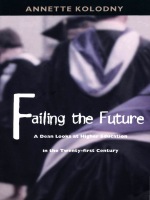
In this volume Kolodny explains the reasons for the financial crisis in higher education today and boldly addresses the challenges that remain ignored, including rising birthrates, changing demographics both on campus and across the country, the accelerating globalization of higher education and advanced research, and the necessity for greater interdisciplinarity in undergraduate education. Moreover, while sensitive to the complex burdens placed on faculty today, Kolodny nonetheless reveals how the professoriate has allowed itself to become vulnerable to public misperceptions and to lampooning by the media.
Not simply a book about current problems and future challenges, Failing the Future is rich with practical solutions and workable programs for change. Among her many insights, Kolodny offers a thorough defense of the role of tenure and outlines a new set of procedures to ensure its effective implementation; she proposes a structure for an “Antifeminist Intellectual Harassment Policy”; and she provides a checklist of family-sensitive policies universities can offer their staff, faculty, and administrators. Kolodny calls on union leaders, campus communities, policymakers, and the general public to work together in unprecedented partnerships. Her goal, as she states in a closing coda, is to initiate a revitalized conversation about public education.
This book should be required reading for all those concerned with the future of higher education in this country—from college trustees to graduate students entering the professoriate, from faculty to university administrators, from officers of campus-based unions to education policymakers.
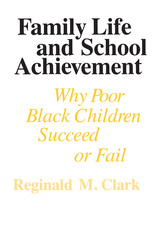
To support his contentions, Clark offers ten intimate portraits of Black families in Chicago. Visiting the homes of poor one- and two-parent families of high and low achievers, Clark made detailed observations on the quality of home life, noting how family habits and interactions affect school success and what characteristics of family life provide children with "school survival skills," a complex of behaviors, attitudes, and knowledge that are the essential elements in academic success.
Clark's conclusions lead to exciting implications for educational policy. If school achievement is not dependent on family structure or income, parents can learn to inculcate school survival skills in their children. Clark offers specific suggestions and strategies for use by teachers, parents, school administrators, and social service policy makers, but his work will also find an audience in urban anthropology, family studies, and Black studies.
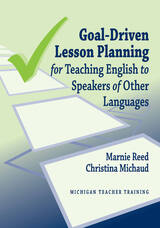
Goal-Driven Lesson Planning shows readers how to take any piece from English language materials—an assigned text, a random newspaper article, an ESL activity from a website, etc.—and use it to teach students something about language. Readers are walked through the process of reflecting on their role in diagnosing what that “something” is—what students really need—and planning how to get them there and how to know when they got there in a goal-driven principled manner.
This book has chapters on the theory of setting specific language goals for students; how to analyze learner needs (including an initial diagnostic and needs-analysis); templates to use when planning goal-driven English language lessons; explicit instruction on giving corrective feedback; how to recognize and assess student progress; and the mechanics and logistics that facilitate the goal-driven language classroom.
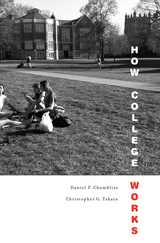
A Chronicle of Higher Education “Top 10 Books on Teaching” Selection
Winner of the Virginia and Warren Stone Prize
Constrained by shrinking budgets, can colleges do more to improve the quality of education? And can students get more out of college without paying higher tuition? Daniel Chambliss and Christopher Takacs conclude that the limited resources of colleges and students need not diminish the undergraduate experience. How College Works reveals the surprisingly decisive role that personal relationships play in determining a student's collegiate success, and puts forward a set of small, inexpensive interventions that yield substantial improvements in educational outcomes.
“The book shares the narrative of the student experience, what happens to students as they move through their educations, all the way from arrival to graduation. This is an important distinction. [Chambliss and Takacs] do not try to measure what students have learned, but what it is like to live through college, and what those experiences mean both during the time at school, as well as going forward.”
—John Warner, Inside Higher Ed
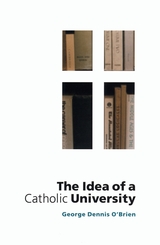
Truth is a central concept for both university and church, and O'Brien's book is built on the idea that there are different areas of truth—scientific, artistic, and religious—each with its own proper warrant and "method." In this light, he argues that one can reverse Shaw's comparison and uncover academic dogma and Christian freedom, university "infallibility" and dogmatic "fallibility."
Drawing on theology and the history of philosophy, O'Brien shows how religious truth relates to the work of a Catholic university. He then turns to the current controversies over Pope John Paul II's recent statement, Ex Corde Ecclesiae, which seeks to make Catholic universities conform to the church's official teaching office. O'Brien rejects the conventional "institutional-juridical" model used by the Vatican as improper both to faith and academic freedom. He argues for a "sacramental" model, one that respects the different kinds of "truth"—thus preserving the integrity of both church and university while making their combination in a Catholic university not only possible but desirable. O'Brien concludes with a practical consideration of how the ideal Catholic university might be expressed in the actual life of the contemporary curriculum and extracurriculum.
For anyone concerned about the place of religion in higher education, The Idea of a Catholic University will be essential reading.
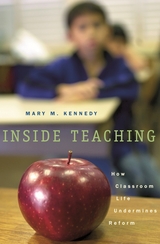
Reform the schools, improve teaching: these battle cries of American education have been echoing for twenty years. So why does teaching change so little?
Arguing that too many would-be reformers know nothing about the conflicting demands of teaching, Mary Kennedy takes us into the controlled commotion of the classroom, revealing how painstakingly teachers plan their lessons, and how many different ways things go awry. Teachers try simultaneously to keep track of materials, time, students, and ideas. In their effort to hold all of these things together, they can inadvertently quash students' enthusiasm and miss valuable teachable moments.
Kennedy argues that pedagogical reform proposals that do not acknowledge all of the things teachers need to do are bound to fail. If reformers want students to learn, they must address all of the problems teachers face, not just those that interest them.
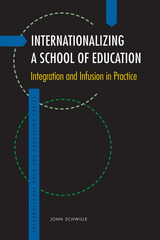
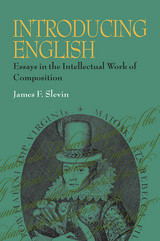

Around 10,000 tax dollars will put a child through many public schools for a year. About 10,000 private dollars will put him through prep school. Why, then, is one system troubled and the other thriving, one vilified and the other celebrated? In this book, a renowned historian of education searches out the lessons that private schooling might offer public education as cries for school reform grow louder.
Lessons from Privilege explores a tradition shaped by experience and common sense, and guided by principles that encourage community, personal relationships, and high academic standards. These "basic" values make a profound difference in a time when popular culture, which mocks intellectual curiosity and celebrates mental passivity, competes so successfully for students' attention.
Arthur Powell uses the experience of private education to put the whole schooling enterprise in fresh perspective. He shows how the sense of schools as special communities can help instill passion and commitment in teachers, administrators, and students alike--and how passion and commitment are absolutely necessary for educational success. The power of economic resources, invested fully in schools, also becomes pointedly clear here, as does the value of incentives for teachers and students.
Though the concerns this book brings into focus--for decent character and academic literacy--may never be trendy or easily applied, Lessons from Privilege presents sensible, powerful, and profitable ideas for enhancing the humanity and dignity of education in America.
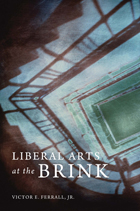
Liberal arts colleges represent a tiny portion of the higher education market—no more than 2 percent of enrollees. Yet they produce a stunningly large percentage of America’s leaders in virtually every field of endeavor. The educational experience they offer—small classes led by professors devoted to teaching and mentoring, in a community dedicated to learning—has been a uniquely American higher education ideal.
Liberal Arts at the Brink is a wake-up call for everyone who values liberal arts education. A former college president trained in law and economics, Ferrall shows how a spiraling demand for career-related education has pressured liberal arts colleges to become vocational, distorting their mission and core values. The relentless competition among them to attract the “best” students has driven down tuition revenues while driving up operating expenses to levels the colleges cannot cover. The weakest are being forced to sell out to vocational for-profit universities or close their doors. The handful of wealthy elite colleges risk becoming mere dispensers of employment and professional school credentials. The rest face the prospect of moving away from liberal arts and toward vocational education in order to survive.
Writing in a personable, witty style, Ferrall tackles the host of threats and challenges liberal arts colleges now confront. Despite these daunting realities, he makes a spirited case for the unique benefits of the education they offer—to students and the nation. He urges liberal arts colleges to stop going it alone and instead band together to promote their mission and ensure their future.

For many college students, studying the hard sciences seems out of the question. Students and professors alike collude in the prejudice that physics and molecular biology, mathematics and engineering are elite disciplines restricted to a small number with innate talent. Gregory Light and Marina Micari reject this bias, arguing, based on their own transformative experiences, that environment is just as critical to academic success in the sciences as individual ability. Making Scientists lays the groundwork for a new paradigm of how scientific subjects can be taught at the college level, and how we can better cultivate scientists, engineers, and other STEM professionals.
The authors invite us into Northwestern University’s Gateway Science Workshop, where the seminar room is infused with a sense of discovery usually confined to the research lab. Conventional science instruction demands memorization of facts and formulas but provides scant opportunity for critical reflection and experimental conversation. Light and Micari stress conceptual engagement with ideas, practical problem-solving, peer mentoring, and—perhaps most important—initiation into a culture of cooperation, where students are encouraged to channel their energy into collaborative learning rather than competition with classmates. They illustrate the tangible benefits of treating students as apprentices—talented young people taking on the mental habits, perspectives, and wisdom of the scientific community, while contributing directly to its development.
Rich in concrete advice and innovative thinking, Making Scientists is an invaluable guide for all who care about the future of science and technology.
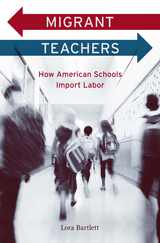
Migrant Teachers investigates an overlooked trend in U.S. schools today: the growing reliance on teachers trained overseas. This timely study maps the shifting landscape of American education, as federal mandates require K-12 schools to employ qualified teachers or risk funding cuts. Lora Bartlett asserts that a narrowly technocratic view of teachers as subject specialists has spurred some public school districts to look abroad. When these districts use overseas-trained teachers as transient, migrant labor, the teachers have little opportunity to connect well with their students, thereby reducing the effectiveness of their teaching.
Approximately 90,000 teachers from the Philippines, India, and other countries came to the United States between 2002 and 2008. These educators were primarily recruited by inner-city school districts that have traditionally struggled to attract teachers. From the point of view of school administrators, these are excellent employees. They are well educated, experienced, and able to teach in areas like math, science, and special education where teachers are in short supply.
Despite the additional recruitment of qualified teachers, American schools are failing to reap the possible benefits of the global labor market. Bartlett shows how the framing of these recruited teachers as stopgap, low-status workers cultivates a high-turnover, low-investment workforce that undermines the conditions needed for good teaching and learning. Bartlett calls on schools to provide better support to both overseas-trained teachers and their American counterparts. Migrant Teachers asks us to consider carefully how we define teachers' work, distribute the teacher workforce, and organize schools for effective teaching and learning.


In today’s culture wars, higher education, a familiar battlefield, faces criticism from both the left and the right. Colleges and universities are accused of indoctrinating conservative students with liberal values and failing to be inclusive of marginalized students. The anxieties expressed on both sides of the political spectrum have much in common. And notably, they are triggered not by the educational mission’s failure, but by its success.
In Networks of Trust, philosopher Anthony Simon Laden offers a new lens through which to view political debates about higher education. Laden argues that a college education encourages students to inhabit and use new informational trust networks: the complex networks of people and institutions they trust as reliable sources of information with which to think about and understand the world. In doing so, a college education leads some students to question the very trust networks established by their communities, placing stress on those social ties. For many students, that stress imposes a considerable cost. Recognizing both the benefits and potential harms built into the education that these institutions provide, Networks of Trust offers a path for both sides to engage with one another and proposes how colleges and universities can carry out their educational mission in a positive, trustworthy manner.
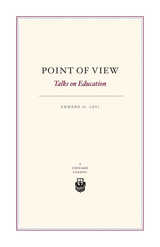
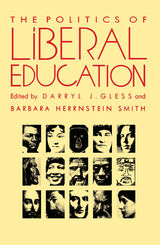
Within this area of consensus, however, the contributors display a wide range of approaches, illuminating the issues from the perspectives of their particular disciplines—classics, education, English, history, and philosophy, among others—and their individual experiences as teachers. Among the topics they discuss are canon-formation in the ancient world, the idea of a “common culture,” and the educational implications of such social movements as feminism, technological changes including computers and television, and intellectual developments such as “theory.” Readers interested in the controversies over American education will find this volume an informed alternative to sensationalized treatments of these issues.
Contributors. Stanley Fish, Phyllis Franklin, Henry Louis Gates Jr., Henry A. Giroux, Darryl J. Gless, Gerald Graff, Barbara Herrnstein Smith, George A. Kennedy, Bruce Kuklick, Richard A. Lanham, Elizabeth Kamarck Minnich, Alexander Nehamas, Mary Louise Pratt, Richard Rorty, Eve Kosofsky Sedgwick
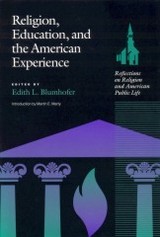
This collection of provocative and timely essays addresses the ways in which religious and educational institutions have come to define one another and American culture and identity.
Education in America-public and private, from the elementary to the university level-is the subject of urgent, ongoing debates. School vouchers, home schooling, prayer in the classrooms, sex education in the schools, and evolution versus creationism are just a few of the touchstones and flashpoints that have ignited a national dialogue concerning the role of religion in U.S. educational institutions.
The ten major essays assembled here emerged from a series of conferences conducted by the Public Religion Project at the University of Chicago Divinity School, funded by a grant from The Pew Charitable Trust. Written by recognized leaders in the fields of education and religion, the essays address such issues as the role of religious studies programs in tax-supported public universities; the evolving role of the university chaplain; the impact of religious doctrine on literary scholarship and the natural sciences; the college president as a spiritual leader; the secularization of private colleges whose foundations rest in the spiritual mission of a specific church or denomination and, conversely, the obligations, if any, of colleges that have maintained distinct denominational identities toward pluralistic outreach and openness; and an examination of the home schooling movement.
A true "dialogue" designed to inspire readers to rethink, argue, act, and continually converse on the subject, Religion, Education, and the American Experience will appeal to educators, college and university administrators, and boards of trustees, as well as academic libraries and scholars of education and religious studies.

This book is designed as a source of inspiration, replication, and adaptation. Each chapter, in varying modalities, addresses interdisciplinary course development and implementation in institutions of higher education. The essays focus on common issues like navigating administrative systems and solving the challenges encountered when crossing departments or colleges, whether regarding course listings or the intricacies of course loads on each professor. Chapters also provide detailed information on the nuts and bolts of the specific course or courses taught, including syllabi, lesson examples, and both formal and informal assessments implemented.
Contributors candidly offer discussions of the failures and successes of their interdisciplinary collaborations, including course design, lesson planning, or complications brought in by unforeseen pandemics. Most chapters end with a summary of lessons learned, where experiences from the field provide opportunities for growth and continued exploration. An excellent resource for educators, this volume offers readers guidance and encouragement to implement the approaches described and inspiration to forge their own paths in the world of multi- and interdisciplinary teaching and research.

The American republic will survive only if its citizens are educated--this was an article of faith of its founders. But seeking common civic ground in public schools has never been easy in a society where schoolchildren followed different religions, adhered to different cultural traditions, spoke many languages, and were identified as members of different "races."
In this wise and enlightening book, filled with vivid characters and memorable incidents that make history but don't always make history books, David Tyack describes how each American generation grappled with the knotty task of creating political unity and social diversity.
Seeking Common Ground illuminates puzzles about democracy in education and chronic conflicts that continue to make news. Americans mistrusted government, yet they entrusted the civic education of their children to public schools. American history textbooks were notoriously dull, but they were also highly controversial. Although the people liked local control of schools, educational experts called it "democracy gone to seed" and campaigned to "take the schools out of politics." Reformers argued about whether it was more democratic to teach all students the same subjects or to tailor curriculum to individuals. And what was the best way to "Americanize" immigrants, asked educators: by forced-fed assimilation or by honoring their ethnic heritages?
With a broad perspective and an eye for telling detail, Tyack lets us see that debates about the civic purposes of schools are an essential part of a democratic culture, and integral to its future.
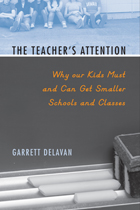
The Teacher’s Attention is a fresh take on relationships in schools. Looking beyond our obsession with raising test scores, this book recognizes that education is a key partner in raising children. Garrett Delavan contends that allowing students, educators and parents to navigate a smaller number of relationships—a concept he calls "relationship load"—provides many benefits, including a better chance at achieving equal access to a good education for all children.
Delavan shows how class size, school size, and longer-term student-teacher relationships are all equally critical components for educating our children ethically and successfully. After examining these proposed reforms in detail, Delavan also considers counterarguments and provides a detailed projection of costs and savings, putting to rest the assumption that smaller classes and smaller schools are necessarily more expensive. Finally, the book discusses possible steps toward implementation, showing how the author's proposed reforms are remarkably practical.

Jewish Americans are divided in their views on Israel. While scholars have outlined philosophical principles to guide educators who teach about Israel, there has been less scholarship focused on the pedagogy surrounding the country. This book resituates teaching—the questions, dilemmas, and decision-making that teachers face—as central to both Israel studies and Israel education. Contributors illuminate how educators from differing pedagogical orientations, who teach in a range of educational settings learn, understand, undertake, and ultimately improve the work of teaching Israel. The volume also looks at the professional support and learning opportunities teachers may need to engage with these pedagogical questions.
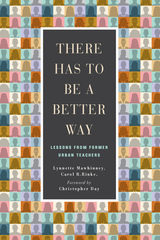
Teacher attrition has long been a significant challenge within the field of education. It is a commonly-cited statistic that almost fifty percent of beginning teachers leave the field within their first five years, to the detriment of schools, students, and their own career development. There Has to be a Better Way offers an essential voice in understanding the dynamics of teacher attrition from the perspective of the teachers themselves. Drawing upon in-depth qualitative research with former teachers from urban schools in multiple regions of the United States, Lynnette Mawhinney and Carol R. Rinke identify several themes that uncover the rarely-spoken reasons why teachers so often willingly leave the classroom. The authors go further to provide concrete recommendations for how school administrators can better support their practicing teachers, as well as how teacher educators might enhance preparation for the next generation of educators. Complete with suggested readings and discussion questions, this book serves as an indispensable resource in understanding and building an effective and productive educational workforce for our nation’s students.

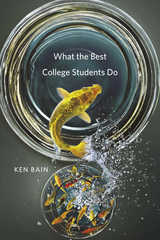
The author of the best-selling What the Best College Teachers Do is back with more humane, doable, and inspiring help, this time for students who want to get the most out of college—and every other educational enterprise, too.
The first thing they should do? Think beyond the transcript. The creative, successful people profiled in this book—college graduates who went on to change the world we live in—aimed higher than straight A’s. They used their four years to cultivate habits of thought that would enable them to grow and adapt throughout their lives.
Combining academic research on learning and motivation with insights drawn from interviews with people who have won Nobel Prizes, Emmys, fame, or the admiration of people in their field, Ken Bain identifies the key attitudes that distinguished the best college students from their peers. These individuals started out with the belief that intelligence and ability are expandable, not fixed. This led them to make connections across disciplines, to develop a “meta-cognitive” understanding of their own ways of thinking, and to find ways to negotiate ill-structured problems rather than simply looking for right answers. Intrinsically motivated by their own sense of purpose, they were not demoralized by failure nor overly impressed with conventional notions of success. These movers and shakers didn’t achieve success by making success their goal. For them, it was a byproduct of following their intellectual curiosity, solving useful problems, and taking risks in order to learn and grow.
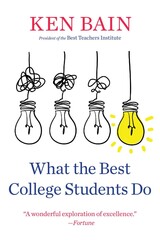
“The ‘best’ students are curious risk-takers who make connections across disciplines. By following those instincts—rather than simply chasing ‘success’—the best students achieved it…A wonderful exploration of excellence.”—Fortune
“Skillfully weaves together some of the best research about effective learning strategies with moving stories about remarkable life-long learners. Some of them had great teachers. But most of them succeed because of what they did for themselves.”—Thomas Luxon, Dartmouth College
“We are always telling students to ‘find their passion.’ Now we have a book that looks at how that happens…Ken Bain can really tell a story…it is very rare for a book based upon research to be such a compelling read.”—José Antonio Bowen, Southern Methodist University
Combining academic research on learning and motivation with insights drawn from interviews with people who have won Nobel Prizes, Emmys, or otherwise led lives of meaning and accomplishment, Ken Bain identifies the key attitudes that distinguish the best college students from their peers. Most start out with a belief that intelligence and ability are expandable, not fixed. This leads them to make connections across disciplines and to find ways of reconceiving problems rather than simply looking for the right answer. Intrinsically motivated by their own sense of purpose, they are not overly impressed with conventional notions of success. The best students study in small bites, focus more on concept than procedure, and work collaboratively, getting friends to test them on their knowledge. They don’t achieve success by making success their goal—when it comes, it is a byproduct of following their intellectual curiosity, solving useful problems, and taking risks to learn and grow.
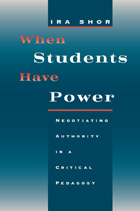
Shor provides the reader with a reenactment of one semester that shows what really can happen when one applies the theory and democratizes the classroom. This is the story of one class in which Shor tried to fully share with his students control of the curriculum and of the classroom. After twenty years of practicing critical teaching, he unexpectedly found himself faced with a student uprising that threatened the very possibility of learning. How Shor resolves these problems, while remaining true to his commitment to power-sharing and radical pedagogy, is the crux of the book. Unconventional in both form and substance, this deeply personal work weaves together student voices and thick descriptions of classroom experience with pedagogical theory to illuminate the power relations that must be negotiated if true learning is to take place.
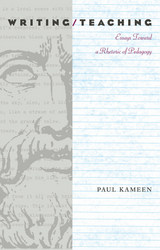
2001 CCCC Outstanding Book Award
The vast majority of academic books are written from the scholar’s position, even those that primarily concern teaching. Writing/Teaching, on the other hand, is a book about teaching written from the position of the teacher. As the title suggests, Kameen’s book is split into two halves—yet both, in different ways and through different discourses, are derived from his work in the classroom, and his own struggle with issues and problems all teachers of writing must face.
The first half is a series of essays originating from a graduate seminar Kameen team-taught with professor and poet Toi Derricotte in 1994. Included are essays Kameen wrote, a selection of pieces written by other members of the group, and a reflective “postscript.” These essays combine personal narrative, reflective meditation, and critical inquiry—all used as discourse to depict and examine the process of teaching.
The second half of the book contains essays on Plato’s dialogues—primarily Phaedrus and Protagoras—as a means to interrogate the position of teacher through the lens of the most famous of Western pedagogues—Socrates. Here, Socrates is used as a tool to examine and critique both Kameen’s own teacherly identity and, in a wider sense, the set of cultural forces that pre-figure the available positions for both “teacher” and “student” in contemporary education.
What unites both halves is the way Kameen approaches each—the “personal” and the “scholarly”—from his position as teacher. The texts presented provide the occasion for a complex and nuanced meditation on the classroom as a legitimate arena for the production of knowledge and research. Sure to be timely and controversial, Writing/Teaching will enter into the debate on whether to reconfigure the relationship between research and teaching currently taking place among teachers of composition, cultural studies, and rhetoric. Compelling reading for teachers or those contemplating a career in the profession.
READERS
Browse our collection.
PUBLISHERS
See BiblioVault's publisher services.
STUDENT SERVICES
Files for college accessibility offices.
UChicago Accessibility Resources
home | accessibility | search | about | contact us
BiblioVault ® 2001 - 2024
The University of Chicago Press









